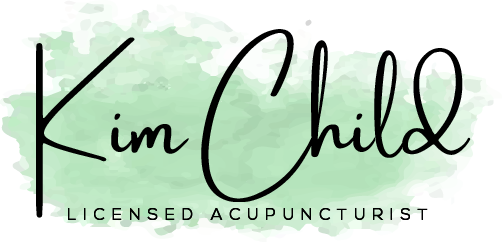Understanding PCOS: Beyond the Basics
Before you read this article, don’t forget to download my free guide to help manage the symptoms of PCOS in my free resource section. Simply scroll down from this article and click on the link.
Polycystic Ovary Syndrome (PCOS) doesn’t always wear the same mask. Symptoms can be as varied as the women it affects—ranging from irregular or sparse periods to heavy, unpredictable bleeding. Some women may stop menstruating altogether (a condition known as amenorrhoea).
What Exactly Are Polycystic Ovaries (PCO)?
Think of polycystic ovaries as ovaries with a crowd of immature follicles—tiny fluid-filled sacs, each up to 8mm in size, that never quite make it to the ovulation finish line. These follicles are the eggs that didn't burst free, and as a result, ovulation doesn’t occur.
PCO vs. PCOS: Not the Same Story
Let’s clear up a common misconception: having polycystic ovaries (PCO) is not the same as having polycystic ovary syndrome (PCOS).
PCO refers to the presence of multiple cysts visible on ultrasound. It’s a reproductive hormone imbalance. PCOS, on the other hand, is a complex metabolic disorder that impacts the entire body, from digestion to reproduction. You can have PCO without the full syndrome and vice versa. Diagnosis requires a closer look: PCO is confirmed through ultrasound, while PCOS is pieced together through symptom history and ultrasound findings.
The Rotterdam Criteria: A Diagnostic Map
To be officially diagnosed with PCOS, a woman must meet at least two out of these three criteria (known as the Rotterdam Criteria):
1. Irregular or absent ovulation
2. Elevated levels of male hormones (androgens), which may show up as acne or excessive hair
3. Enlarged ovaries with 12 or more follicles visible on ultrasound
Two Faces of PCOS
PCOS isn’t one-size-fits-all. The condition presents in different ways, including two common types:
Type 1: Regular cycles and fertility, but signs of excess androgens and polycystic ovaries
Type 2: Irregular periods and polycystic ovaries, but normal androgen levels
Did you know acupuncture may be able to help reduce symptoms and, for those trying to conceive, may help improve fertility?
PCOS is a condition that affects women's hormone levels. The main symptoms include:
- Infrequent or irregular periods
- Excess androgens (sometimes called "male hormones”) which can lead to symptoms like excess hair and acne
- Polycystic ovaries
- Weight gain
- Hair thinning
- Reduced fertility
How Acupuncture Can Help PCOS:
Research suggests several ways acupuncture might help women with PCOS.
- Hormone Regulation: Acupuncture has been shown to help balance the hormones that regulate the menstrual cycle. It can lower high levels of androgens and improve the levels of other hormones involved in the menstrual cycle. [Reference]
- Improved Blood Flow to the Ovaries: This may help improve ovarian function and the health of the eggs. [Reference]
- Reducing Stress: Acupuncture is known to help reduce stress. Since stress can worsen PCOS symptoms, reducing stress can help manage the condition better. [Reference]
- Improving Insulin Sensitivity: Some studies suggest that acupuncture might help improve how the body uses insulin. Since many women with PCOS have insulin resistance (where the body doesn't use insulin effectively), improving insulin sensitivity can help manage symptoms and reduce the risk of developing diabetes. [Reference]
- Decreasing Inflammation: PCOS is associated with low-grade inflammation, and acupuncture might help reduce inflammation in the body, which could improve symptoms. [Reference]
Whether you’re trying to manage your PCOS in order to get pregnant or simply want to regulate your hormones and your cycle, I hope you’ll consider adding acupuncture to your wellness routine. If you have questions, cotnact me. I offer a free discovery chat over video link or phone. I know PCOS is complex and I'm happy to talk with you before setting up an appointment.
